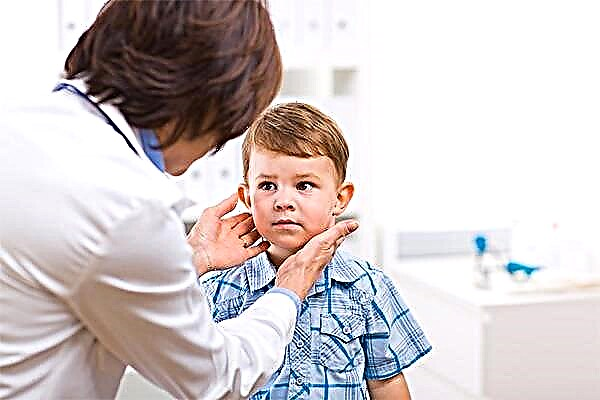
When a baby eats little, for a mother it is akin to a disaster. A lot of questions immediately arise, why and what to do now, because the first year of life is the year of the most intensive growth and development, and without a full and sufficient amount of nutrition, the baby will be difficult. In fact, not everything is so disastrous. You just need to understand the reasons.
Little is how much?
Everyone has their own notions of "a lot" and "a little". And therefore, often women who complain that the baby does not eat well, do not even suspect that this is actually not the case. Therefore, first of all, you need to decide on the average nutritional standards for infants. Babies have stomach sizes that are roughly comparable to the size of their fist. The stomach grows - nutritional norms increase. That is why at 1 month the baby can eat up to 12 times a day, and by 5 months - up to 8 times.
At the age of 1-2 days old, babies should normally consume up to 7-10 grams of breast milk at a time. In 3-4 days - already up to 40 grams. The first week of life is characterized by an increase in the norm to 50-70 grams, and in the second week the baby eats from 50 to 60 grams. Per month, the amount of milk per feeding increases to 110 grams or so.
If the baby is breastfed, the mother can determine the amount he has eaten, having carried out two weighings of the beloved child - before feeding and immediately after it. The difference in weight will be the amount that the baby ate.
If the baby is artificially fed, then it is even easier to determine the amount of formula he has eaten.

There are separate norms for premature babies, and the pediatrician tells about them individually, starting from how exactly the baby was premature, what was the deficit in his body weight at the time of birth.
The recommended feeding regimen for children in the first three months is every 2.5-3 hours with a night break of at least 6 hours. If the baby eats at night, up to six months it is not considered something out of the ordinary, but the biological need for night feeding after reaching the age of 6 months is lost and from this age it is better to transfer the baby exclusively to daytime meals.

Causes
The most common reason a child does not eat well is in overfeeding. After reading the forums, having seen enough educational videos performed by Internet moms, some mothers begin to feed the child on demand: as soon as the baby squeaked, he is immediately given a breast at any time, without thinking that the baby can squeak not only from hunger, but also for other reasons ...
As a result, the baby eats almost constantly, almost every hour, and it is not surprising that with each separate feeding he does it not too willingly, grunts, sucks sluggishly, sometimes gags, and often spits up right there. The problem of overfeeding, repeatedly raised by the famous pediatrician Dr. Komarovsky, is characteristic not only of mothers of first-borns, who still have a poor idea of which side to approach the child, but also mothers with experience. To feed is the strongest maternal instinct given by nature itself. In the absence of common sense, he becomes dominant.

If you think that your child eats little, first of all, make sure that his diet is correct and reasonable: the baby eats at intervals of 3-3.5 hours (at least 2.5 hours), he has time to get hungry before he will offer the breast again. In most cases, the normalization of the diet completely solves the problem - the child begins to breastfeed more willingly and eat actively.
What other reasons can a baby have to eat badly and little?
Malaise, illness, teething, intestinal colic, runny nose
With a decrease in appetite, babies in the first year of life react to any deterioration in their well-being. Therefore, in case the child is not the first feeding refuses breast or bottle or eats little, and then cries or falls asleep for a short time, you should measure his temperature, examine the gums, oral cavity, make sure that the baby's tummy is soft, painless, there are no signs of bloating. If it is difficult to assess these signs on your own, visit a pediatrician, the doctor will easily cope with this task and answer all questions.
With a painful condition, babies may refuse food altogether, but when there is improvement, the appetite returns. With colic, the child begins to eat normally, but as he is satiated, discomfort appears in the intestines, as a result, the baby restlessly eats breast milk, screams, sweats and twitches, tries to pull his legs to the stomach.

Weight gain is a very important criterion in this case. If your child does not eat well, but gains weight well, there is nothing to worry about - the child has enough of everything, even if the mother and grandmother have a different opinion on this. But the child's significant lag in weight is another reason for visiting a pediatrician and a comprehensive examination.
Physical discomfort when feeding
Not all new mothers are familiar with the breastfeeding technique, and therefore it may be inconvenient to hold the baby, not taking into account the peculiarities of the irregular shape of the nipple or nipple for a bottle. If during feeding the child is wet or crumpled, if he swallows a lot of air while sucking, then it is difficult to talk about full feeding.
Be sure to eliminate all unpleasant factors and try to conquer again - for sure, a dry and clean child, who is properly held, who is offered a comfortable nipple or uses a special pad on an anatomically incorrect nipple, will have an appetite.

Mood
Yes, you heard right, your newborn child has its own mood and sometimes it is so bad that you don't feel like eating at all. The crumbs that tear for a long time in the crib, waiting for mom to deign to come, need some time on their hands before feeding to calm down and stop sobbing. Do not immediately offer them a breast or a bottle of food.

Taste of food
Your baby may not like the taste of breast milk or formula. This is his full human right, despite the fact that he is small. Nursing mothers should make sure that there are no hot, spicy spices, marinades, garlic, and alcoholic drinks in their diet. For parents of an artificial man, advice to change the mixture is more suitable. But it is better to do this not on your own, but after consulting a pediatrician.
Pay attention to smells too - babies' sense of smell is well developed. If the mother uses too intrusive perfume, this can literally ruin the child's appetite.

The child does not want to eat, he is thirsty
Very often, the parents of a newborn do not even suspect that their child is crying not only from hunger, but also from thirst. It is clear that while the child does not eat anything except breast milk, but it is not able to fully cover the need of a small body for fluid. Offer water. And only after making sure that the child does not want to drink water at the moment, proceed to feeding.
To a greater extent, children need water who eat formula milk.

Complementary feeding is not introduced correctly
When introducing complementary foods, parents must strictly observe the age terms, checking the time of introducing vegetable, fruit purees, meat and fish dishes with the complementary feeding table and the individual recommendations of the pediatrician who observes the child. You also need to take into account the personal tastes of the baby - some do not like applesauce, so is it worth persisting when you can replace it with pear puree?
The reason for the refusal of the child from complementary foods may be the late introduction of the latter, when the baby eats only breast milk for too long and other tastes seem to him unusual, alien.

Night feedings are a double-edged sword
Claims that the baby must be fed at night are wrong and destructive from the start. On women's forums, you can find a lot of "useful" tips on how to properly wake up a child in the middle of the night, if he suddenly sleeps and does not wake up. The correct answer is don't wake up. Let him sleep.
From night feedings, if the child himself requires them, it is worth starting to get rid of already at 3 months, reducing them to 1 time per night, and completely eliminated by six months. Your baby's daily appetite will become noticeably better.
Regarding the complaints of some mothers that a child in his 8 months eats willingly only in his sleep and cannot eat normally during the day, the crumbs have nothing to do with medical problems and health conditions. This is a typical spoilage, which is caused by gross educational mistakes of parents.

Solution
So, your child is eating little and poorly. And, of course, you need to do something about it. Start by talking to your pediatrician. The specialist will assess the baby's weight gain in recent months, check the tables and accurately answer the question of whether your child is feeling fine. If everything is fine, then there is no need to worry - there are children who eat little and selectively until they come of age, but this does not prevent them from growing up and becoming normal, smart, strong adults.
The worst thing you can think of in this situation is to start forcing the child to eat. This can cause the formation of persistent psychogenic food rejection, and the problem will only worsen.

Set the mode
When a baby from the first months of his life lives according to a certain regimen, taking food at certain hours, then his feeling of hunger becomes reflexive. Children quickly adapt, and literally 3-4 days of life according to the regimen is enough for the child to begin to feel hunger by the appointed hour.

Make sure that the baby is not too tired by the time of feeding. If this was preceded by massage, gymnastics, games, then the crumb may get tired and there will be no strength left for eating. Walk more, pay attention to water procedures - your appetite will improve.
Monitor the emotional climate
Babies are very sensitive to the psychological background in the family. If the mother is calm, calm and tiny, and he usually has no problems with appetite. If scandals reign at home, mom is in tension, stress hormones that are off scale in her body also get into breast milk, causing great anxiety in the baby. Encourage your child to be surrounded by love, care, and peace of mind. This is often enough.

Do not create problems from scratch
Remember that there are not so many diseases that cause persistent and long-term loss of appetite in children, and they are all serious. Usually these are disorders of the central nervous system, but you will learn about them earlier from doctors, and the diagnosis will not be established by a decrease in appetite. If the pediatrician says that everything is in order with your baby, then you should not invent diseases where they do not exist.

What to do if the baby does not eat well, see the next video.



